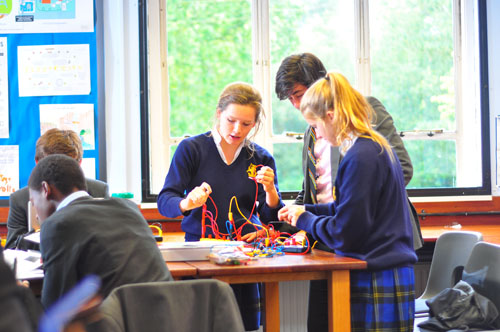
The recent bi-annual IB World Conference in Buenos Aires brought together heads of International Baccalaureate schools to discuss how technology is changing the way we think about teaching and learning. An innovative and provocative agenda engaged global educational leaders in discussions about the challenges faced with integrating technology into education. Charles Fadel, Alapító & Chairman of the Center for Curriculum Redesign, dazzled us with cutting edge robotic inventions destined to further transform our world. This left me wondering – how long have we got before computers have enough power to exceed the thinking capacity of all human beings on earth? Charles notes that “when it comes to humans vs. computers teaching children, for the foreseeable future, teachers are totally irreplaceable if they do their job right. Education requires personalized delivery at a high non-routine skill level, which is not going to be done by computers any time soon.” DR. Siva Kumari, whose appointment as the new IB Director General becomes effective on January 1, 2014, comments that “trends influencing the world in which we live and work are transforming the way students learn and the IB is uniquely positioned to support this transformation.” What do the heads of some of the world’s great IB schools think about the impact of technological advances? I chatted with Maria Barberis (Fő, Colegio Carmen Arriola de Marín, Argentína), David Garner (Fej, International School of Indiana), Anthony Seldon (Master, Wellington College, Anglia), and Kevin Skeoch (Fej, Dwight School Seoul) hogy a perspektívák.
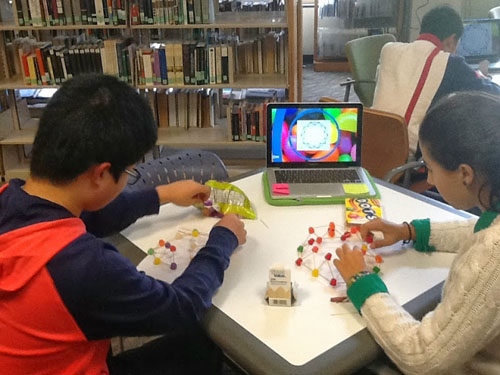
Research shows higher engagement and better retention when students use technology. How has technology impacted your classrooms? How do you predict your model will change five years from now?
David Garner: Először is, we should consider what “tanulás” az. Are we talking about a finite set of information that students need to memorize and retain? I’d suggest that’s an outdated concept, and using technology to support it may be an improvement on what went before, but is not a significant step forward.
We have instituted a one-to-one Apple laptop program for students in Grade 6 and above, with computer labs and iPads for younger students. This supports our aim to create an inquiry-based and student-centered learning environment. Inquiry-based approaches are closely aligned with constructivist theory – mi “create knowledge” as we research, explore and brainstorm, rather than memorize a set of knowledge that is presented to us. It’s more focused on developing skills for life long learning rather than merely content – critical skills of analysis, comparing, contrasting, hypothesizing, summarizing, and arriving at understanding of complex topics. Technology allows students to access a wide range of authentic sources of information, presented in a variety of media. This is excellent for our more project-based work where we want students to research a central question. Általában, the inquiry-based approach is more engaging. Technology can add to that significantly, and allow learning and discovery to take place independently of the classroom and of the teacher.
We are committed to holistic education and this requires a high level of attention to socio-emotional matters. This is why I think that while technology will improve student engagement and ultimately the quality of learning, we still need schools to carry out their socio-emotional function.
Anthony Seldon: Things are changing so quickly now that even planning one year ahead seems almost self-defeating. Nekünk van, azonban, made huge strides here in terms of creating a coherent digital strategy which harnesses the best ideas from leading practitioners in the field. Appointing a senior member of staff who is passionate about the transformative effect that technology can have on learning has also been key, but we are not starry-eyed about technology: some things can be done better using a book instead of an iPad. Google tools can promote collaborative learning but there is also no substitute for face-to-face teaching which emphasizes how essential human learning is. Így, I am a fan of technology, and we have put huge resources into making this a school which is very digitally literate, and I believe that our teaching has benefited because of this, but I would caution against seeing it as a panacea which can solve fundamental issues. A poor teacher doesn’t become an outstanding teacher simply because they know their way around an iPad.
Maria Barberis: Technology has clearly increased motivational standards to a great extent among teachers and students. It has brought knowledge access up to date, javítása diákok’ presentations and making their learning process a multi-dimensional one. Jelenleg, Moodle, video presentations planned and edited by students, blogs, interactive web-pages, wikis and others are being used. We believe that five years from now the main change will be in personal devices. We are now witnessing the increase in the use of tablets and smart phones. We plan to incorporate new technologies as they appear.
Kevin Skeoch: Seoul can boast the fastest Internet connection in the world and technology appears to be one of its greatest exports. Igaz, the technology in the taught curriculum is not always matching with technology in the real world. Technology is very much created by an educated class that has surpassed the critical mass of those responsible for supporting it. Technology is therefore best developed through students who use and manipulate it as I once did a typewriter or traditional library. For my students, the future cannot say no to the use of telephones, computers and technology in the classroom. We have to embrace this technology. Dwight school Seoul is a BYOD school for this reason in grades 6-12. Azonban, despite my wishes or dreams, the reality that technology is abused and misused by students remains our concern. The reality is that as much as we try to open the use of technology, it is teachers and schools that force it to close down for legal, parental, societal and even personal reasons.
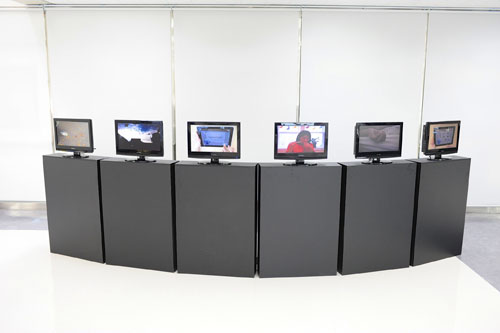
How is the role of the teacher changing in the digital age? Will that role be different 5 év múlva?
Kevin Skeoch: Students are growing up in the digital age and teachers need to adapt and evolve both their teaching techniques and the content taught. Do students need to be able to do manual arithmetic when every device now has a built-in calculator app? Another example of this is spelling: with the evolution of spell checkers, do students need to be taught spelling anymore? The life skills that a modern student needs are very different to those needed 20 évvel ezelőtt.
Anthony Seldon: The qualities that make a good teacher such a force for positive change will be the same in five years as it is now, and has always been. Technology is a help, but to some extent it should ‘melt away’ so that nothing comes between the student and the learning. The best lessons I’ve seen, in a tech-rich environment such as Wellington, are those where the technology has been used, but the excitement is all about learning, and ideas. A great lesson on Shakespeare, például, in which the class have used Google Groups, or Docs, to work collaboratively, kellene, I hope, get them excited about the genius of Shakespeare, rather than the tools they’re using.
David Garner: Moving from the ‘sage on the stage’ to the ‘guide on the side’. Teacher as facilitator of learning. The teachers need to be reasonably tech-savvy (many are not!).
Teljes állam az Egyesült Államokban elfogadták a digitális tankönyvek. Az egyetemi könyvtárak egyre adattárak a digitális tartalom. What will your students’ tankönyvek kinézni 5 év múlva?
David Garner: We have not yet made the switch to digital textbooks. The IB inquiry-based and trans-disciplinary approach to learning encourages the teacher to create materials and students to conduct their own research rather than depend on “A tankönyv”, így tankönyvek nem olyan központi mindennapi tanulást az iskolákban több hagyományőrző programok. (The paradox here is that using digital technology to deliver a traditional curriculum is not really a qualitative advance in learning.) I hope that digital textbooks will be less recognizable as textbooks, but more a way of directing attention to specific concepts or concerns, and helping students find multiple ways of addressing these issues.
Anthony Seldon: There is no doubt that they will be important in the future. To be able to study, azt mondják,, World War II, and have multimedia right there in front of you, is tremendously exciting. Textbooks that allow students of different ability ranges to progress so that they can shape their own programmes, will be exciting, and possibly transformative, developments. Természetesen, much of this comes with a caveat: how affordable will this be? iPads are still out of range for many schools and students, and a physical textbook is more durable, and more robust, than a tablet. Go into a chemistry laboratory with a group of 13 year olds and ask yourself: would I be happy having 30 iPads out here? Possibly not. Things will evolve, de, much like Kindles and other ereaders, they will supplement textbooks, but probably not replace them.
Maria Barberis: Digital learning tools are used in about 20% of the cases in our school today. We believe that in five years all our textbooks might be digital, provided that necessary internal agreements are reached.
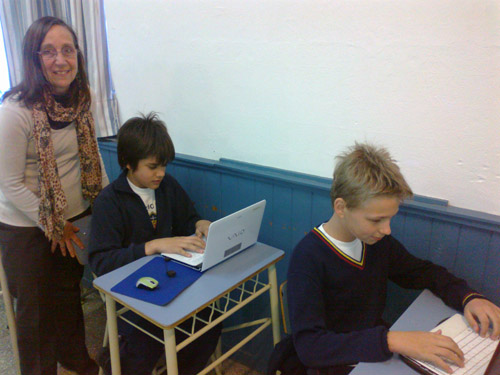
How has technology impacted the IB curriculum development in your school?
David Garner: Hardware (students and teachers with wireless MacBooks and iPads) and software allow for more variety in working and learning styles, and place vastly more resources at everyone’s fingertips. The curriculum can be more easily planned, feljegyzett, reviewed and mapped – especially important when we are encouraging interdisciplinary projects. Technology seems to support positive collaborative work.
Maria Barberis: Technology has enhanced access to content and increased student interest and creativity.
Research shows tablets, mobiltelefonok, Internet sources and social media platforms continue to infiltrate classrooms in the US rapidly. To what extent are these tools used in your classrooms?
David Garner: Because we have a one-to-one laptop (Alma) politika (Grade 6 felfelé) és általában jó nyújtása iPad és vezetékes számítógépek a fiatalabb tanulók, mi nem így kihasználhatja mobiltelefonok, although these are not banned and students may well use them as a more nimble alternative to the laptops on occasions. We are not making good, proaktív közösségi média használata, and this is an area we are looking at.
Schools need to get ahead of these media and lead the way. I don’t think age has anything to do with it. All social media use by students as part of their school program needs to be appropriately monitored.
Kevin Skeoch: We encourage students to use age appropriate devices in the classrooms, which include laptops, tablets and smartphones. Age appropriate devices for younger students would be tablets (iPad), and older students are required to bring laptops (BYOD policy). SNS are available for use in a monitored environment, however SNS are not permitted to be used during class time. Students are required to sign IT user contracts and are monitored for abuse of these services, például. cyber bullying, accessing inappropriate material, szerencsejáték.
Anthony Seldon: Some teachers use all these more than others, and it isn’t only the younger members of staff doing this. Many of our middle leaders – Heads of Departments – are spreading good practice. Twitter is used by many students and staff as an essential learning tool. We worked with Facebook on a guide for teachers.
We are acutely aware of cyber bullying, via Facebook, and it is something we have to face all too often. We have to educate our young people to behave online responsibly, and this means that staff have to see that technology is liberating but, as we have seen recently, it is not without its hidden dangers. I believe we are at the beginning of a new age of intellectual enlightenment, and MOOC’s are a very high-profile manifestation of this flourishing of new ideas, but schools are the frontline of this new age, and it is incumbent on all of us to educate our young in how to move from being digital natives to digital citizens, with all the responsibility and accountability that implies.
For more info about Charles Fadel: http://curriculumredesign.org/about/team/
Wellington College: http://www.wellingtoncollege.org.uk/
International School of Indiana: http://www.isind.org/
Dwight School Seoul: http://www.dwight.or.kr/
Colegio Carmen Arriola de Marin: http://www.marin.esc.edu.ar/
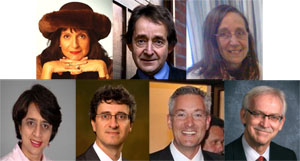
Photos are courtesy of Wellington College, International School of Indiana, Dwight School Seoul and Colegio Carmen Arriola de Marin.
További cikkek a Got Tech? sorozat: A Global Search for Education: Got Tech? – Finnország, A Global Search for Education: Got Tech? – Kanada, A Global Search for Education: Got Tech? – Ausztrália, A Global Search for Education: Got Tech? – Szingapúr, A globális keresési Education: Got Tech? – Egyesült Államok, A Global Search for Education: Got Tech? – Argentína
A globális keresési Oktatási, velem és világszerte elismert szellemi vezetők többek között Sir Michael Barber (UK), DR. Michael blokk (Az US), DR. Leon Botstein (Az US), Professzor Clay Christensen (Az US), DR. Linda Darling-Hammond (Az US), DR. Madhav Chavan (India), Professzor Michael Fullan (Kanada), Professzor Howard Gardner (Az US), Professzor Andy Hargreaves (Az US), Professzor Yvonne Hellman (Hollandiában), Professzor Kristin Helstad (Norvégia), Jean Hendrickson (Az US), Professzor Rose Hipkins (Új-Zéland), Professzor Cornelia Hoogland (Kanada), Tisztelt Jeff Johnson (Kanada), Mrs. Chantal Kaufmann (Belgium), DR. Eija Kauppinen (Finnország), Államtitkár Tapio Kosunen (Finnország), Professzor Dominique Lafontaine (Belgium), Professor Hugh Lauder (UK), Professor Ben Levin (Kanada), Lord Ken Macdonald (UK), Professzor Barry McGaw (Ausztrália), Shiv Nadar (India), Professzor R. Natarajan (India), DR. PAK NG (Szingapúr), DR. Denise Pope (US), Sridhar Rajagopalan (India), DR. Diane Ravitch (Az US), Richard Wilson Riley (Az US), Sir Ken Robinson (UK), Professzor Pasi Sahlberg (Finnország), Professzor Manabu Sato (Japán), Andreas Schleicher (PISA, OECD), DR. Anthony Seldon (UK), DR. David Shaffer (Az US), DR. Kirsten Magával ragadó Are (Norvégia), Chancellor Stephen Spahn (Az US), Yves Theze (Lycee Francais-beli), Professor Charles Ungerleider (Kanada), Professzor Tony Wagner (Az US), Sir David Watson (UK), Professzor Dylan Wiliam (UK), DR. Mark Wormald (UK), Professzor Theo Wubbels (Hollandiában), Professzor Michael Young (UK), és professzor Minxuan Zhang (Kína) mivel azok feltárása a nagy kép oktatási kérdés, hogy minden nemzet ma szembesül. A Global Search Oktatási közösségi oldal
C. M. Rubin a szerző két legolvasottabb internetes sorozat, amely megkapta a 2011 Upton Sinclair díjat, “A Global Search for Education” és “Hogyan fogjuk olvasása?” Ő a szerzője a három bestseller könyv, Beleértve The Real Alice Csodaországban.


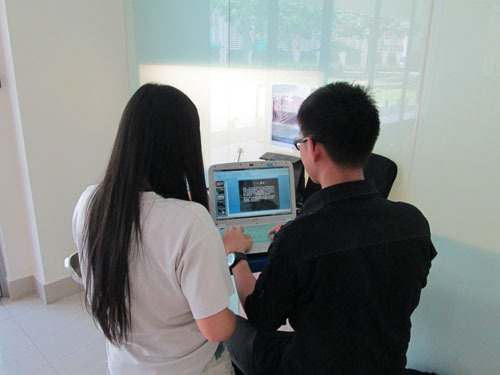
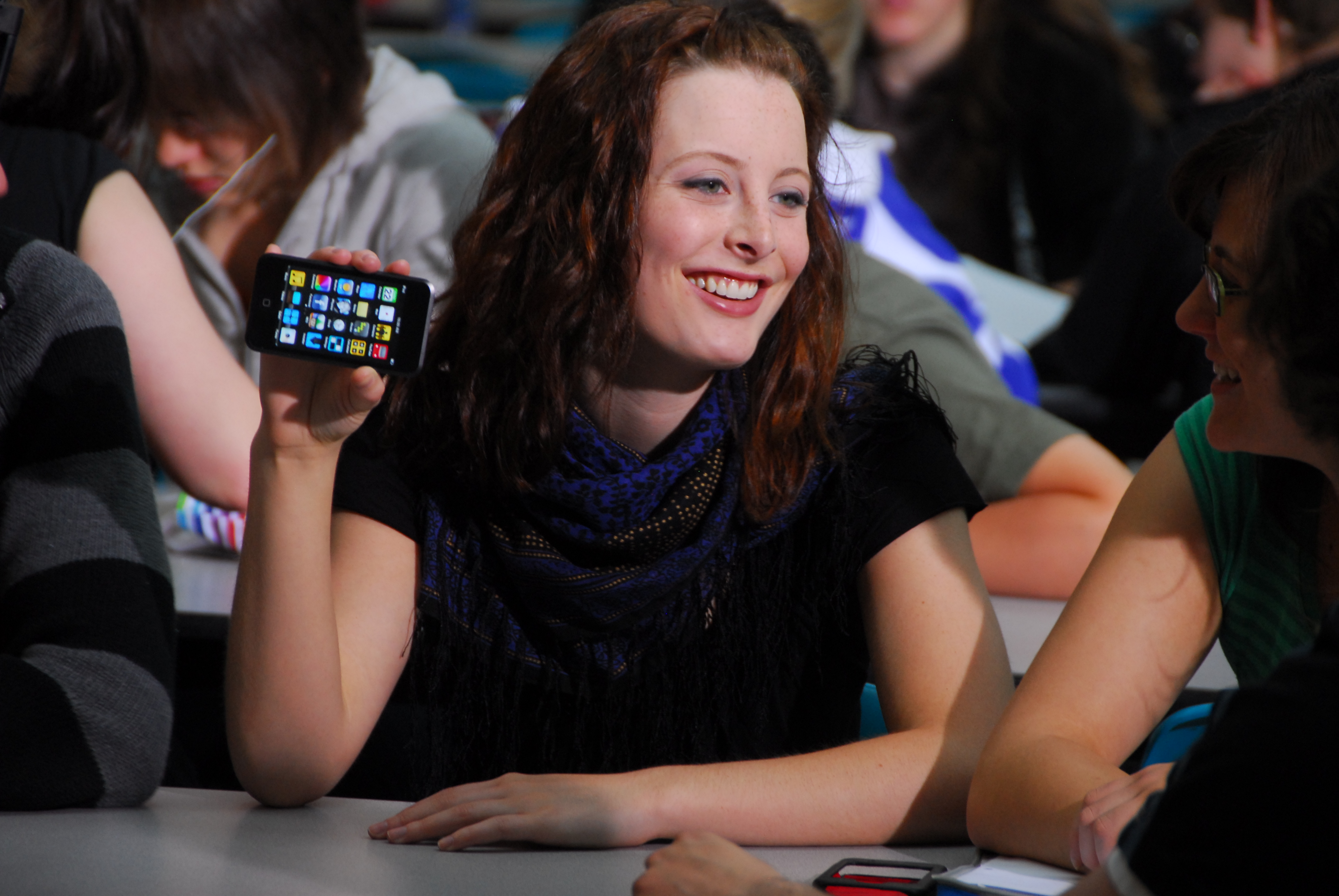
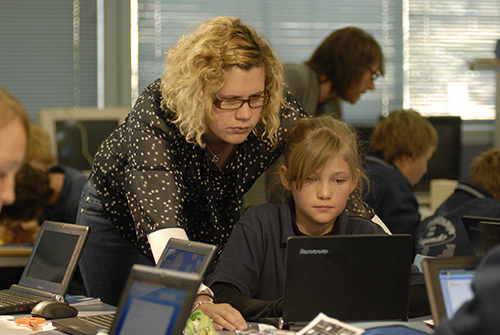
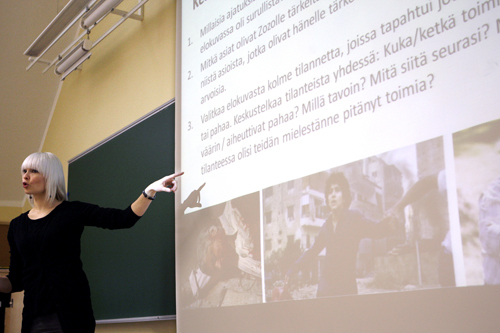
Legutóbbi hozzászólások